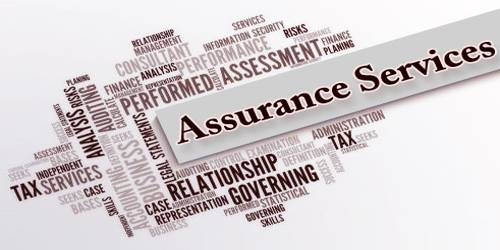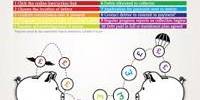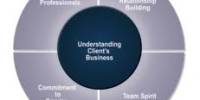Assurance services are a type of independent professional service (audit activities) typically provided by licensed or chartered accountants or Chartered Registered Accountants, with the purpose of enhancing information or information background so that decision-makers may make decisions that are more informed and potentially better. Assurance services can involve an analysis of any financial document or transaction, such as a loan, contract, or financial website. The objectives of these audits are to ensure that management, the board, and regulators are correct with their financial statements and that activities are performed with compliance with relevant policies and regulations. This examination certifies the correctness and validity of the item that the CPA (certified public accountant) is reviewing.

Certified Public Accountant (CPA)
Assurance incorporates five key components: relationship, subject matter, criteria, evidence, and conclusion. Assurance likewise centers on dissecting cycles, controls, and activities of an association. It hopes to decide if the business is working with fitting exactness. For example, a CPA are going to be hired to supply an assessment of a business’s procedures surrounding the preparation of their accounting and/or financial records. Assurance commitments aimed at checking historical financial details are referred to as assurance assessments (these are governed by the International Standard on Assurance Engagements (ISRE 2400)), but assurance reports can be collected on several other topics and may then be subject to ISAE 3000 or other individual assurance engagement requirements.
Other audit services, like consulting and advisory audits while important audit activities don’t seem to be a part of the peace of mind audit service. Businesses use assurance services to extend the transparency, relevance, and value of the data they open up to the market and their investors. Assurance programs may be extended to risk assessments, market efficiency, the security of information systems, e-commerce, and efficiency in healthcare. However, financial processes are not exclusively evaluated by companies offering insurance services; they may also look at other aspects of the operation, such as IT processes, compliance controls, or other procedures in various departments.

Auditing
Assurance services are aimed toward improving the standard of knowledge for the individuals making decisions. Providing independent assurance could be thanks to bringing comfort that the knowledge on which one makes decisions is reliable, and so reduces risks, during this case, information risk. Assurance services often include the checking of validity inside previous business cycle records. It is important to remember that it is difficult to use assurance as a synonym for the word audit. Assurance may be explained as a more comprehensive form of an audit. In most cases, though, it typically relates to audits of the financial statements.
Consulting services don’t seem to be considered as assurance because in consulting services, an accountant generally uses their professional knowledge to form recommendations for a future event or a procedure, like the planning of a data system or accounting system. Assurance systems, on the other hand, are structured to assess the validity of past business cycle data. Insurance service providers can help clients navigate the challenges, threats, and opportunities of their partner networks through the proactive management and control of third-party partnership threats. Businesses use assurance services to extend the transparency, relevance, and value of the data they divulge heart’s contents to the market and their investors.
While there is no limitation on what insurance firms will search for, skilled accountants cannot support any obligation for which they do not feel they are competent. It is important to note that consultations are taking place on the other end of the continuum. Consulting services create forward-looking information for a corporation to raise the position itself. For instance, implementing a 12-month rolling cash forecast to form long-term decisions. Assurance assesses past information and ensures it’s valid.

Financial Statement Audit
Financial Statement Audits are the most common example of insurance services. US firms that are publicly listed on the stock exchange must have their quarterly and annual financial statements audited by an independent, external public accounting company, according to the legislation known as the Sarbanes-Oxley Act of 2002. When a public business firm audits financial statements, they’re ensuring every number on the statements is accurate. They are doing this by testing transactions that conjure each account.
Professional guidelines can be found in the International Standard on Assurance Engagements (ISAE) 3000 and in the Assurance Sourcebook issued by the Institute of Chartered Accountants in England and Wales (ICAEW) for certified accountants who wish to engage in assurance services, which also provides practical advice for businesses choosing between various insurance services.
Information Sources:
















